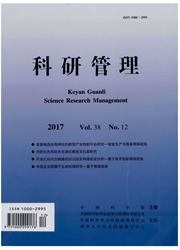

 中文摘要:
中文摘要:
本文以20余家国有和民营企业中256对管理者和下属员工为被试,开展对偶研究,采用信度分析、相关分析、验证性因素分析和结构方程建模等方法,在对中国式变革型领导、交易型领导和家长式领导行为进行比较和研究的基础上,分析了三种领导行为的特性及其在我国企业的表现和适用性,获得了具有我国文化特色的独特维度,即德行维度,并提出和检验了领导行为通过组织公平和信任对员工工作态度和行为产生影响的作用机制。
 英文摘要:
英文摘要:
Applying correlation analysis, reliability anlysis and structural equation modeling methods, a survey on 256 dyads of respondents in 22 state - owned and private enterprises in Sichuan province is conducted. Based on the comparative study of transactional, transformational, and paternalistic leadership behaviors, the features and adaptabilities of three type leadership behaviors in Chinese enterprises have been analyzed. The unique dimension of moral in Chinese leadership is found. And the mechanism that leadership influences employees' working attitudes and behaviors through the mediating effect of organizational justice and trust is checked.
 同期刊论文项目
同期刊论文项目
 同项目期刊论文
同项目期刊论文
 期刊信息
期刊信息
